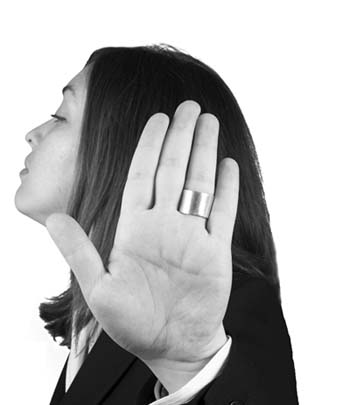Sleep and depression are interconnected. Lack of sleep can lead to depression or sleeplessness itself can be an aftermath of depression. If you are already depressed, your sleeplessness will increase your depression. If not, your insomnia will be a precursor to a state of depression. This is because, when you realize that you are sleepless, your worry increases. You start worrying about your helpless state and that leads to depression or a gloomy feeling ultimately. The vicious cycle continues to panic you unless and until your clear insomnia from your life. Essential oils can help with insomnia cure if used in the right way.
Aromatherapy for insomnia: Aromatherapy essential oils has been widely used in insomnia cure. This is because the therapeutic effect of essential not just to heal your physical wounds, but even to help you forget your mental/emotional wounds. When there is emotional healing, heaviness lifts and sleeplessness fades away. Your chaotic mind finally comes to rest.

There can be several reasons for insomnia and stress is one important reason. On the contrary, a good night’s sleep is essential to carry on your daily routine. Life also looks better and well handled when you have rested well the previous night. Another thing is, when you sleep well, you will not worry about sleeplessness and that would alleviate your depression. Aromatherapists prescribe several essential oil blends to help with insomnia. Below are a few of them:
1. Sleepy blend: This blend will put to you to sleep within a few minutes of use. Combine 10 drops of Roman Chamomile, 5 drops of Clary Sage and 5 drops of Bergamot and blend well to make an aromatherapy recipe that can be added to a tissue and kept under your pillow. If you don’t like this pillow technique, you can make a blend at the ratio of 2 drops of Roman Chamomile, 1 drop of Clary Sage and 1 drop of Bergamot to your diffuser and use it one hour before bedtime.
2. Lavender massage: As you know, Lavender is a great oil for inducing sleep and rest and this Lavender oil massage can help you do only that. Mix Lavender with carrier oil (3 to 5 drops is sufficient) and rub it on the back of your neck, along your spine and 1-2 drops at the bottom of each foot. Do this just before bedtime. You can even use Lavender as a diffuser in your bedroom. Or you can soak in bath water of 10 drops of Lavender oil 15 minutes before you go to sleep.
3. Blissful sleep blend: For a good night’s sleep, combine 15 drops of Lavender with 10 drops of Frankincense and 5 to 6 drops of Tangerine. This is a wonderful combination that diffuses in about 15 minutes time. The blend is both therapeutic and heavenly too as the aroma is exotic and relaxing.
4. Insomnia Body Rub: What can be more useful than this body rub which can induce sleep instantly? Combine 4 drops of Clary Sage, 2 drops of Lavender, 3 drops of Valerian, 3 drops of Vetiver and use 6 drops or 3 drops of the blend in 1 tsp of carrier oil. You can use it as a body rub and rub it on to your temples, back and all points that you are comfortable with.






 Essential oils for panic attacks: When you are under a panic attack, you may not be able to function properly. You are anxious, nervous and helpless. Your endocrine system functions inappropriately, and you may face problems like breathlessness, high pulse rate and hyper-anxiety. Panic attacks are triggered by many factors and some of them are stress, bad foods, emotional ill-health, drugs, traumas, emergency situations etc. Essential oils can help with alleviating the symptoms of panic attacks. Some of the below blends which can help with treating the attacks:
Essential oils for panic attacks: When you are under a panic attack, you may not be able to function properly. You are anxious, nervous and helpless. Your endocrine system functions inappropriately, and you may face problems like breathlessness, high pulse rate and hyper-anxiety. Panic attacks are triggered by many factors and some of them are stress, bad foods, emotional ill-health, drugs, traumas, emergency situations etc. Essential oils can help with alleviating the symptoms of panic attacks. Some of the below blends which can help with treating the attacks:

